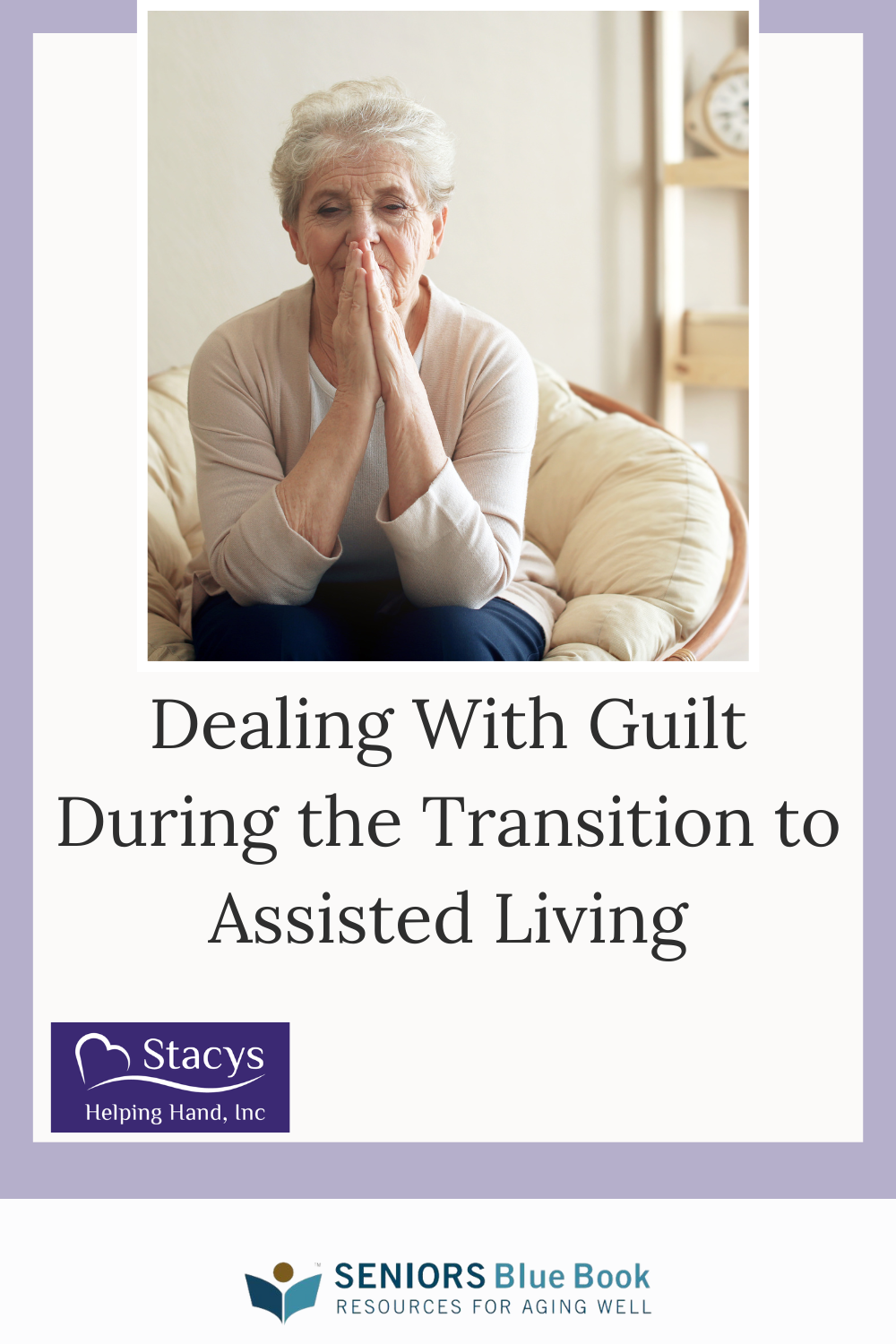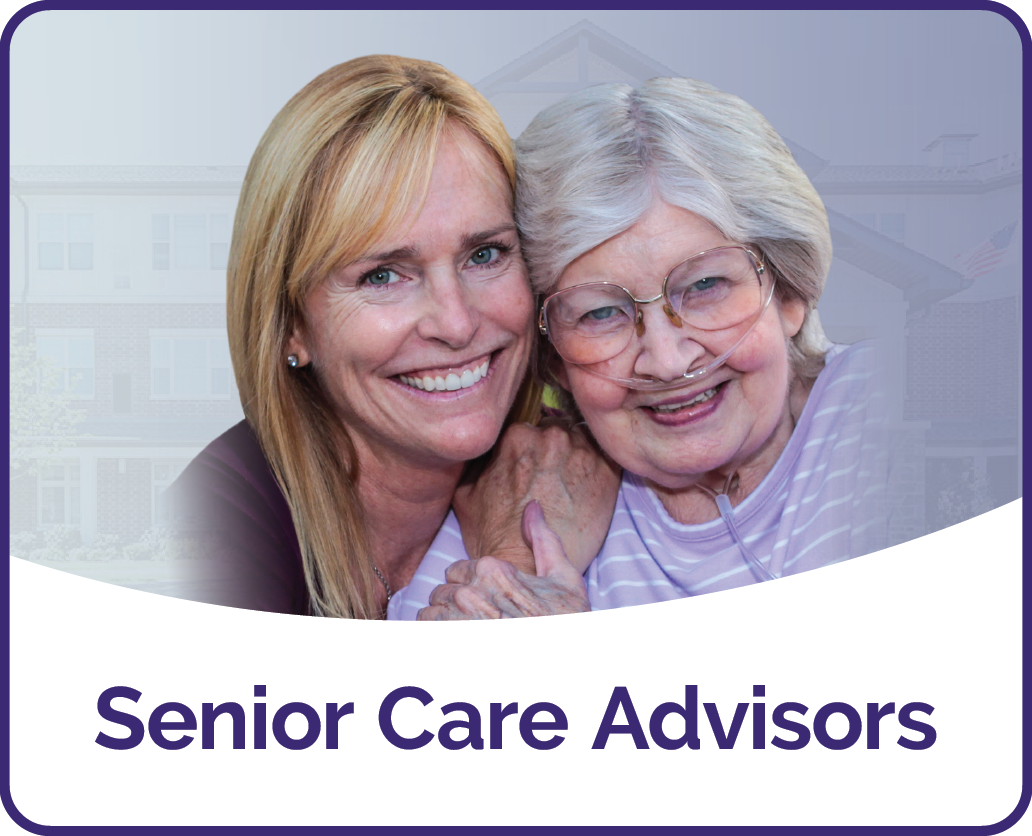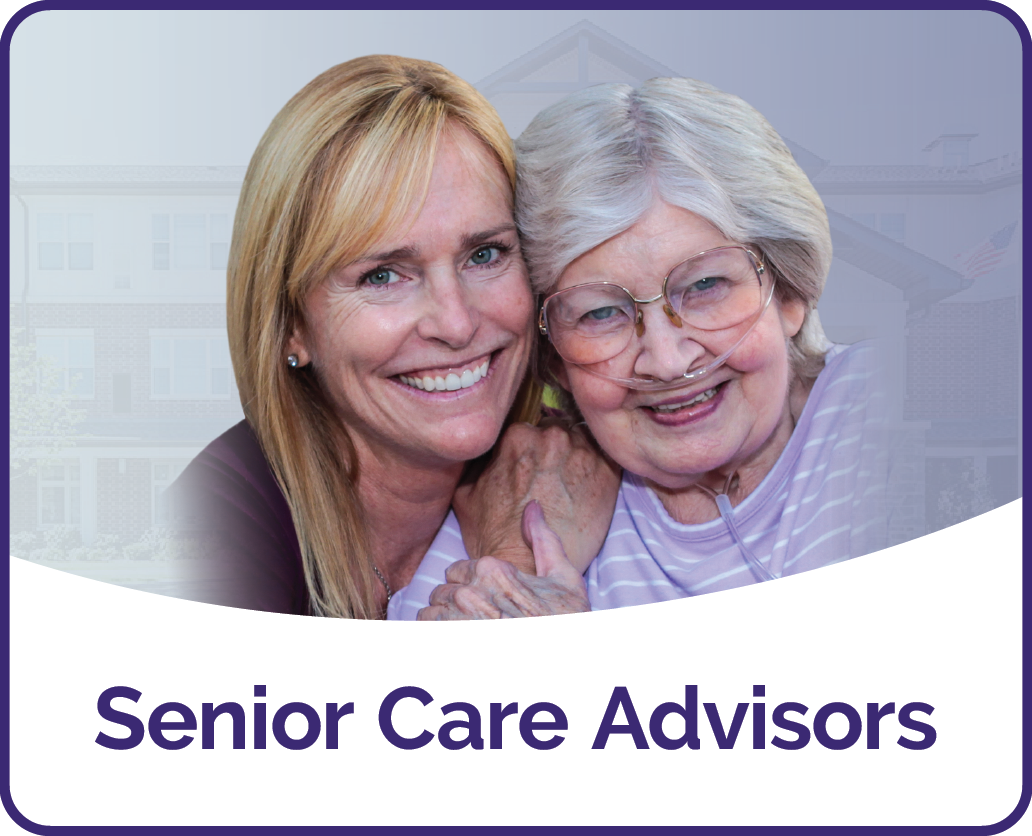Dealing With Guilt During the Transition to Assisted Living
Stacy's Helping Hand
For more information about the author, click to view their website: Stacy's Helping Hand
Aug 29, 2023
Colorado - Denver Metro
Are you feeling overwhelmed going through the process of researching and deciding if it’s time for your loved one to enter assisted living? You’re not alone. This is almost never an easy time for families. We understand. In addition to having assisted hundreds of Colorado families through this tough time, we have personally been through the process. As Denver’s Assisted Living Experts, the team at Stacys Helping Hand, Inc are advocates for you and your loved one through this transition. Our promise is to not only help your loved one find the best environment for their physical and mental well-being, but to support you and your family during this emotional journey.
Guilt – The Invisible Hurdle
Other than a significant amount of paperwork, the actual move-in process can be quite quick if you choose a facility that can provide a bed and furniture. Of course, moving in will take some additional time if you have to get the furniture moved in before your loved one moves in and gets settled. Finding the best facility, filling out the paperwork, and making the actual move are all time consuming and can be overwhelming. But, for caregivers and family members the toughest hurdle is not an actual “to do” on the checklist.
The decision to move puts many wheels in motion. Over the coming weeks, you’ll face many important decisions, but beware of one of the largest hurdles we’ve witnessed present itself: guilt. During a transition to Assisted Living Facilities, guilt is one of the most prevailing emotions caregivers experience. You don’t see it coming and you may not have even realized you were feeling it. This is especially challenging when loved ones stoke the flames of guilt. Ugh. It is very common, and there is actually a 7-Step Method that can help you check-in and move forward with less weight on your shoulders. Give it a try:
- Recognize your guilt. If you don’t know you feel guilty, there is no way of improving.
- Connect with others. When we share our experiences, it lightens the load.
- Catch yourself in the act. We have the power to observe our inner dialogue. Guilt sounds like, “I should or could _______.”
- Don’t be hard on yourself. Guilt can easily pile on itself. You have to let it go.
- Be OK with good enough. Guilt comes from falling short of your own expectations. Keep your expectations reasonable.
- Ask for help. Get help from family, friends, trusted advisers, counselors, or experts in the field.
- Let go. You aren’t a superhero, so stop trying to be one.
There is a light at the end of the tunnel. In our experience working with families and seniors, the average period of time that it will take for your loved one to feel more at home and comfortable, referred to as the “the transition period”, is typically 45 to 60 days. At that point, your loved one is more comfortable, and the staff has had a chance to get to know your loved one’s physical and emotional needs.
There is no simple answer or single, right way to help your loved one transition to Assisted Living. But the challenges that are ahead can be manageable. If you would like to learn some self help tools such as EFT Tapping to manage your stress, contact Release the Wait LLC.
If you would feel more comfortable talking to a Senior Transition expert to get answers to your questions, Contact Us or Call our team at Stacys Helping Hand, Inc at 720-248-7758
- To view the original version of this article visit www.stacyshelpinghand.com/blogs/denver-memory-care-senior-independent-living-facilities-blog/761586-dealing-with-guilt-during-the-transition-to-assisted-living
- Seniors Blue Book was not involved in the creation of this content.
Other Articles You May Like
A Rare Pair: Same Great Care, Two Unique Styles - Choosing Personal Care in McCandless
To improve the quality of life available at home, today's best senior living gives equal weight to an independent lifestyle and compassionate professional care and offers a holistic approach to wellness, longevity, and happiness. Those looking for a Personal Care or Memory Care residence in the McCandless area have a unique advantage in that the same provider, Legend Senior Living, manages two nearby residences of equally high caliber. Ridgecrest and The Remington benefit from Legend's three decades of innovation in senior living. Both offer upscale, carefree, highly social environments. Each has its distinctive appeal. The Ridgecrest lifestyle takes on the flavor of an adventure in a resort-style atmosphere. Friendship and fun are the objectives, aided by full-service amenities: a cocktail lounge, indoor pool, art studio, billiards room, putting green, bocce ball court, covered patio with fireplace, to name a few. The Remington recalls the elegance of classic Pittsburgh with its magnificent tray ceilings and sunlit manor house common areas. Splendid balconies, sunny courtyards, and covered patios encourage frequent gatherings with friends. At Ridgecrest and The Remington, we believe in the power of community and engagement. That's why we've brought our signature Gold Leaf Dining to Both residences. Our chef-prepared cuisine, designed for health and taste, is served in a welcoming restaurant-style atmosphere. You'll savor the flavor of local favorites, international delicacies, and seasonal selections, all designed by a licensed nutritionist. Bistro-style dining makes for a fun meal between activities. And speaking of activities, our full-time Life Enrichment Coordinator creates a dynamic calendar of events and opportunities. From fitness classes to art workshops, there's always something to pique your interest and encourage new friendships. Both communities feature Legend's proactive approach to Memory Care. Compassionate, expert associates employ innovative therapies that bring actual results, improved cognition and behavior, and the ability to create new memories. It's an empathetic approach, striving to be the resident's best friend, learning their Life Story. In the Legend philosophy of wellness and quality of life, individuality is paramount. Complete independence comes with just the right amount of personal assistance. So, top-notch care is a given at Ridgecrest and The Remington. It comes down to "What's your style?" Find our more at legendseniorliving.com.
How Does Colorado Medicaid Pay for Assisted Living?
Does Medicaid pay for Assisted Living? Medicaid is funded in part by the federal government and in part by the states. If you are confused about Medicaid, you arent alone. The Federal and State government are continuously changing rules surrounding healthcare, making it difficult for many people to know if they are using the correct information and making the right choices. Below, weve gathered some of the main benefits and drawbacks as well as some links to our vetted resources. Or, feel free to give our team at Stacys Helping Hand, Inc a call at the number above if you would like a Denver assisted living expert to help provide some clarity.Does Medicaid Pay for Assisted LivingIn Colorado, you can apply directly to Medicaid on your own, or you can choose to get Medicaid through the PACE program. In the Denver area, the program is called the InnovAge Greater Colorado PACE. We recommend utilizing InnovAge if the centers are conveniently located due to the fact that many of the assisted living facilities that dont accept Medicaid will accept payments through InnovAge. The drawback is that InnovAge centers are in limited zip codes and require that you go through their network of experts. For difficult cases, you might need to talk to a local medicaid expert.Medicaid BenefitsIf you have limited assets, low income and you need help paying for nursing home or assisted living care, Medicaid might help you pay for part of your care. Nursing home and assisted living services are considered types of long-term care. Long-term care consists of not just medical services, but also personal services. For example, a resident in a nursing home might pay for assistance with bathing and dressing in addition to medical treatment. Medicaid rules for long-term care are significantly different in many ways than their rules for other services.Medicaid DrawbacksMedicaid may not be the best source of funding for assisted living depending on your situation. The first questions most often asked is whether Medicare will pay for assisted living. The answer is no. Medicare is strictly health insurance. Long Term Care Medicaid pays about 30% less than whats needed for most assisted living costs. Medicaid will cover up to $2250 a month at most.Since Medicaid reimbursement rates for assisted living facilities are not high, many assisted living communities dont accept Medicaid. The ones that do are often shared living communities. Also, given the limited range of services for which Medicaid provides assistance and the enrollment caps and waiting lists for Medicaid waivers, many families might benefit by finding affordable assisted living outside of the Medicaid system.EligibilityFor those who need help with assisted living in Denver, adults without dependent children whose household income does not exceed 133% Federal Poverty Level can apply here and will also need to apply for an Elderly Blind and Disabled Waiver (EBD Waiver). If they already have Colorado Medicaid Insurance, then they would apply for the Medicaid EBD Waiver. This waiver is what will contribute to covering the costs of assisted living.Weve written in more depth about the financial eligibility aspects of Long Term Care Medicaid (EBD Waiver) in Paying for Assisted Living Facilities: Spend Downs. In a nutshell, Long Term Care Medicaid requires you to contribute most of your income for room and board when you are living in an assisted living and the EBD Waiver will supplement the facility for your care. You are allowed to keep a small fixed amount of money as a personal needs allowance to pay for snacks, clothing and personal products.There are spousal protection rules, but if you need that much detail, wed recommend talking to a local expert. You can give us a call at Stacys Helping Hand, Inc at 720-248-7758
Sun Safety for Everyone with These Sun Safety Tips
Stay Sun-Safe with These Sun Safety Tips Summer is in full swing and with it comes the long-awaited sunshine. While the sun can provide many benefits, it can also be detrimental to our health if we do not take care to protect ourselves. Whether you're spending time outdoors on a sunny day, going for a walk or just sitting on the porch, protecting yourself from harmful rays should always be a top priority. In this blog post, we will share tips and tricks on how to keep safe in the sun. Facts and Stats About Skin Cancer Staying ahead of skin cancer means staying informed about its causes, risks, and outcomes. The Skin Cancer Foundation (Opens in a new window) shares the following staggering facts and stats about skin cancer in the United States: 1 in 5 Americans will develop skin cancer by the age of 70. Every hour, more than 2 people die of skin cancer in the U.S. Your risk for melanoma doubles after experiencing five or more sunburns. Early detection of melanoma leads to a 99% 5-year survival rate. Risks of Skin Cancer and Who is Most at Risk Although anyone can develop skin cancer, some people are more at risk than others. According to the American Cancer Society (Opens in a new window), those with fair skin, light hair, and blue or green eyes are more likely to get skin cancer, as are those with a personal or family history of skin cancer. Additionally, exposure to UV rays from the sun or tanning beds can greatly increase your risk. And while skin cancer can happen at any age, it's more common in people over the age of 50, says the Skin Cancer Foundation (Opens in a new window). Tips for Staying Safe in the Sun We all want to make sure that were taking the best possible care of ourselves and our loved ones, especially when it comes to protecting ourselves from the dangers of spending too much time in the sun. Overexposure can lead to serious health risks such as dehydration, sunburns, heat exhaustion even skin cancer so its imperative for us to be aware of sun protection methods during outdoor activities. Here are some sun safety tips to bear in mind when spending time outside: Apply sunscreen regularly: Use a broad-spectrum sunscreen (SPF of 30 or higher) that blocks both UVA and UVB rays. To ensure that sunscreen is evenly applied, use about an oz (a shot glass) worth of sunscreen or enough to fit in the palm of your hand. Reapply every two hours or immediately after swimming or sweating. Wear appropriate clothing: Wear loose, comfortable clothing that covers as much skin as possible, such as long-sleeved shirts and pants. Consider sun protective clothing with UV blocking fabric. Seek shade: Stay under the shade as much as possible and always use an umbrella, tent, or other porous objects to provide shade. Again, avoid being in the midday sun from 10 a.m. to 4 p.m., when UV rays are the strongest. Wear a hat: Wearing a wide-brimmed hat is a great way to protect your face, ears, and neck from the sun. Hydrate: Drink plenty of water being in the sun can be dehydrating. Dont be fooled by cloudy weather: UV radiation can still damage your skin, even on a cloudy day. It is important always to apply sunscreen when going outside for an extended period. Tips for Preventing Skin Cancer According to the Centers for Disease Control and Prevention (Opens in a new window), skin cancer is the most common type of cancer in the U.S., and it affects millions of people every year. It is caused by damage to the skin cells caused by the sun's harmful UV rays. CDC research show that certain people carry risk factors that make them more susceptible to skin cancer (Opens in a new window). Whether you have risk factors for cancer or not, there are plenty of ways to protect your skin from the sun and prevent skin cancer: Monitor your medications: Some medications can make your skin more sensitive to the sun. If you are taking any prescription drugs, talk to your doctor, or pharmacist, about the potential side effects and how to protect your skin. Live a healthy lifestyle: Eating a healthy diet, getting regular exercise, and managing stress can all have a positive effect on your skin. By living a healthy lifestyle, you can give your skin the best chance of staying healthy and avoiding skin cancer. Avoid Tanning Beds: If you're looking to get a tan, skip the tanning bed and opt for a self-tanner instead. Tanning beds expose your skin to harmful UV rays, increasing your risk of skin cancer. Get Regular Skin Checks: Schedule regular appointments with a dermatologist to have your skin checked for any signs of skin cancer. Catching it early can greatly improve your chances of successful treatment. Protect. Protect. Protect: As mentioned above, some of the most proactive steps you can take to protect yourself from skin cancer is to seek the shade; avoid the suns UV rays when they are strongest between 10 am and 4 pm; wear sun protective clothing; and use a broad-spectrum sunscreen with an SPF of 30 or higher. Call today for more information 303-300-6666.
Local Services By This Author
Stacy's Helping Hand
Assisted Living 1040 South Gaylord Street, Denver, Colorado, 80209Let us help you find the best care and housing option for your loved one - Assisted Living, Independent Living, Memory Care or Skilled Nursing. As Senior Care Advisors with over 12 years experience, we know the level of care each community or small home provides, their reputation and cost. We will help determine your loved ones physical care needs and what will be the best fit for them socially. As a neutral party, we tour the communities/homes with you and help you ask the right questions. We stay with you as your liaison, sounding board, and advocate for 3 months after you move in. Read our 5 Star reviews on Google and Yelp!
Stacy's Helping Hand
Memory Care 1040 South Gaylord Street, Denver, Colorado, 80209Let us help you find the best care and housing option for your loved one - Assisted Living, Independent Living, Memory Care or Skilled Nursing. As Senior Care Advisors with over 12 years experience, we know the level of care each community or small home provides, their reputation and cost. We will help determine your loved ones physical care needs and what will be the best fit for them socially. As a neutral party, we tour the communities/homes with you and help you ask the right questions. We stay with you as your liaison, sounding board, and advocate for 3 months after you move in. Read our 5 Star reviews on Google and Yelp!
Stacy's Helping Hand
Housing Placement & Resource Specialists 1040 South Gaylord Street, Denver, Colorado, 80209Let us help you find the best care and housing option for your loved one - Assisted Living, Independent Living, Memory Care or Skilled Nursing. As Senior Care Advisors with over 12 years experience, we know the level of care each community or small home provides, their reputation and cost. We will help determine your loved ones physical care needs and what will be the best fit for them socially. As a neutral party, we tour the communities/homes with you and help you ask the right questions. We stay with you as your liaison, sounding board, and advocate for 3 months after you move in. Read our 5 Star reviews on Google and Yelp!


